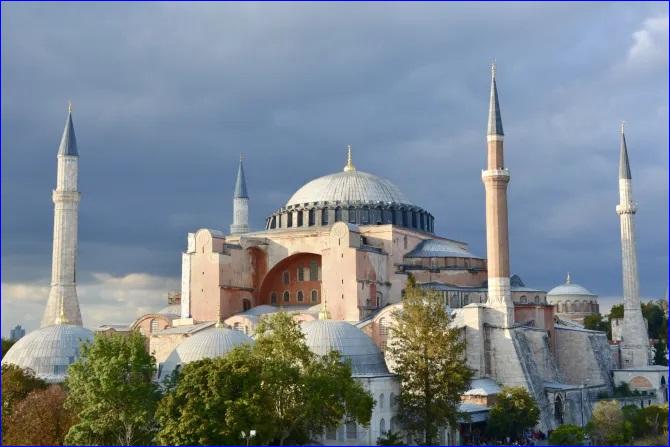


 Rodrigo Tetsuo Argenton/Wikimedia)
Rodrigo Tetsuo Argenton/Wikimedia)
The attack, which roughly coincided with the first anniversary of a massive earthquake that killed thousands in Turkey and Syria in 2023, raises questions of whether it is dangerous to be a Christian in Turkey today and how hospitable the 99%-Muslim country is to other faiths.
Related: The Case of the St. Gabriel Assyrian Monastery in Midyat, Turkey
Despite provisions for religious freedom existing on paper in Turkey, Turkish Christians of various denominations today suffer under the weight of government bureaucracy as well as societal pressures. The United States Commission on International Religious Freedom (USCIRF) says Turkish society has in recent years seen a "marked increase in incidents of vandalism and societal violence against religious minorities."
"The government also continues to unduly interfere in the internal affairs of religious communities. Religious minorities in Turkey have expressed concerns that governmental rhetoric and policies contribute to an increasingly hostile environment and implicitly encourage acts of societal aggression and violence," USCIRF says.
Turkey is home to between 12,000 and 16,000 Jews, several thousand people of various other faiths, and several hundred thousand Christians. About 25,000 of those are Roman Catholics, many of them migrants from Africa and the Philippines, according to a 2022 report by the U.S. State Department.
Unlike some other majority-Muslim countries, Turkey's constitution defines the country as a secular state. It provides for freedom of conscience, religious belief, conviction, expression, and worship and prohibits discrimination based on religious grounds, according to the U.S. State Department. However, Turkey is one of the 95 countries in the world that criminalizes blasphemy, in this case against Islam, punishable by six months to one year in prison.
According to the advocacy group Open Doors, a strong presence of religious nationalism and an emphasis on Islamic values by the government in Turkey creates pressure on believers of other faiths. The government also maintains a list of recognized religions and registers and records people's religious affiliation on an electronic chip on ID cards. Although Christianity is broadly recognized, the government fails to recognize Armenian Apostolic Orthodox Christians and Greek Orthodox Christians, as well as Jews.
"Christians are viewed as a negative Western influence, and those who choose to follow Jesus -- whether from Islam or secularism -- can face pressure from their families and communities to recant their faith," Open Doors reported.
According to the group In Defense of Christians (IDC), religious groups of various creeds face restrictions on their rights to own and maintain property, to train clergy, and to offer religious education. In particular, the Turkish government continues to interfere in the administration of the Greek Orthodox Church's Holy Synod as well as with the Armenian Patriarchate, including the selection of leadership, IDC says.
Under President Recep Tayyip Erdoğan, many aspects of Turkish society have increased their favoritism for Islam to the detriment of other religious communities. In a significant move in 2020, Erdoğan reconverted the cathedral of Hagia Sophia -- formerly a museum -- and another historic Christian church in Istanbul into mosques.
Protestant congregations have reported bureaucratic difficulties under the government. The State Department reports that the World Evangelical Alliance continued to express concerns about the situation of evangelical Christians in the country, including members being subject to deportations and reentry bans. Reports indicate that the government has expelled 60 or more foreign Christian missionaries and their families from the country since 2020.
According to Open Doors, hostility toward Christians is particularly acute in inland areas, where attitudes are typically conservative and Islamic. Most nontraditional Christian communities, such as Baptist, evangelical, and Pentecostal congregations, live in the Western coastal cities, such as Istanbul, which tend to be more liberal and secular in nature, the group says.
Turkey's status as a place difficult to be Christian has long roots, despite the country being one of the original places where Christianity flourished.
In 1915, in what has come to be known as the Armenian Genocide, Ottoman authorities began arresting Armenian intellectuals and leaders in Constantinople. The empire commenced a campaign of mass displacement of Amernians and other minorities, including Greek, Syriac, and Chaldean Christians. The displacement encompassed family separation, death marches, starvation, and other abuses inflicted upon the empire's mostly-Christian Armenian population. An estimated 1.5 million Armenians perished in the genocide, which Turkey has long denied ever took place.

or register to post a comment.